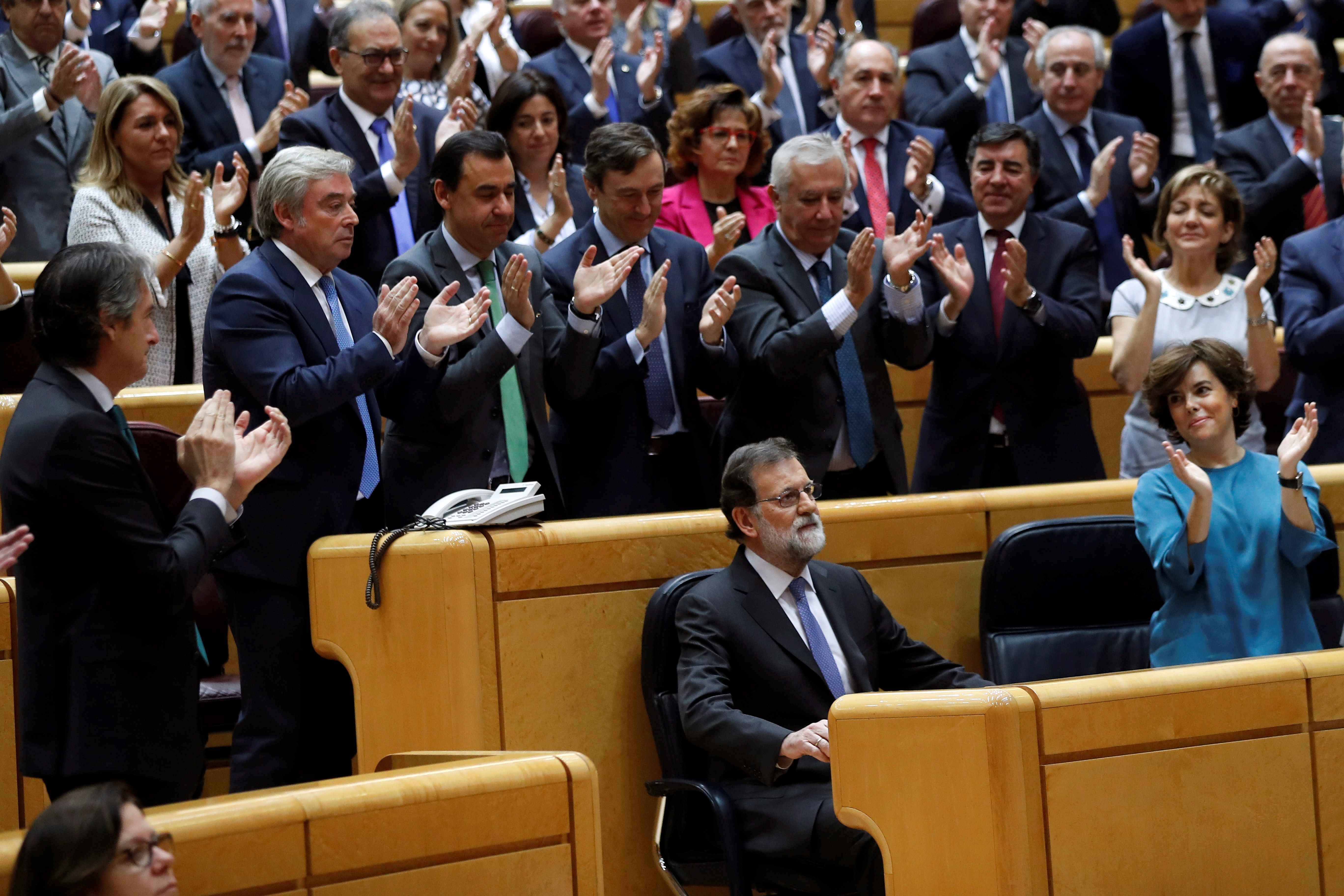The Partido Popular (Popular Party) is downplaying the visit of Carles Puigdemont and other members of the Catalan government to Brussels, claiming that they're using it as a way to avoid going to the Catalan government palace and their respective ministries, after being removed from their roles by the application of article 155 of the Spanish Constitution. "He's desperate" said the PP's general coordinator, Fernando Martínez Maíllo, about president Puigdemont this Monday. He also expressed his belief that the Parliament's deputies voting in secret on the independence resolution on Friday shows fear of the legal consequences that could come from the vote, hence being an implicit recognition of Spanish law.
"One of the great values of the European Union is the defence of the rule of law, the law, constitutional values. And as such, he should stay at home", said a firm Maíllo in a press conference after the party's national executive committee meeting. Sources from the PP leadership, however, say that if Puigdemont were to request political asylum, the Spanish embassy would be informed. Currently, they're breathing easy as the Belgian prime minister has already asked one of his ministers who had offered asylum to the Catalan government to avoiding "adding fuel to the fire".
The PP's number three didn't hide the feeling of victory among the party's ranks. According to sources who attended the closed meeting, prime minister Mariano Rajoy announced that "Spain [has] won", despite last Friday's declaration of independence. "They are winning those who can defend themselves facing those who want to destroy [Spain]", was Rajoy's message to the party faithful. He is also reported to believe that article 155 has been "effective".
"Everything became easy" when the Mossos d'Esquadra (Catalan police) "positioned themselves beside the [Spanish] Constitution"
The same sources recognise that "there were doubts" initially about what would happen after a unilateral declaration of independence, but "everything became easy" when the Mossos d'Esquadra (Catalan police) "positioned themselves beside the [Spanish] Constitution". They also describe the speaker of the Catalan Parliament, Carme Forcadell, as accepting the chamber as being dissolved as a consequence of "its litany of lawsuits". They do not, however, discount the possibility of civil servants at the rank of general sub-directors resigning in the coming hours, despite the Spanish government's orders.
Maíllo repeated this line publicly, saying that the departure of the head of the Mossos, Josep Lluís Trapero, the Catalan government's representative to Brussels, Amadeu Altafaj and ERC (Catalan Republican Left) and PDeCAT (Catalan European Democratic Party) agreeing to stand in the 21st December elections symbolised a surrender by the independence movement. "Their lies have been demonstrated. They've cheated. And they're leaving because they knew that it was a lie, the mask has fallen off", he said when asked by El Nacional about his evaluation of the resistance, or not, offered by the Catalan government to the application of article 155.
Maíllo implicitly supported the words of PSOE (Spanish Socialist Workers' Party) spokesperson, Oscar Puente, who this Monday complained about the 17 pro-independence deputies for remaining in their positions in the Spanish Congress. He said it would be another example of the disgrace the pro-independence leaders were showing towards to the declaration of independence. "It's an implicit recognition of the illegality of their acts", he said in answer to a question from this newspaper as to whether he shared PSOE's opinion.
The PP say that the next key point will be the 21st December elections. Today they held a meeting with their candidate, Xavier García Albiol. Maíllo is so far discounting a coalition with Ciudadanos (Citizens) and/or PSC (Catalan branch of PSOE), and dodged questions about post-election pacts or whether they would help Ciudadanos' leader Inés Arrimadas become president. They haven't yet decided on their election strategy, although Rajoy is not expected to have a strong presence in Catalonia during the campaign.

